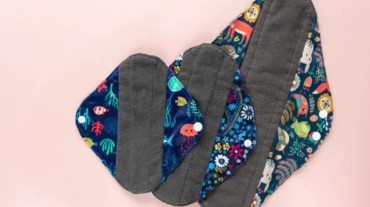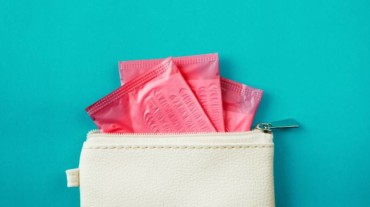Chat with ![]()

Chat with ![]()


This idea that thrives on the principle of optimum utilisation and recycling of resources to avoid wastage has hit many aspects of our lives—including menstruation. After all, sanitary napkins and tampons are usually made of non-biodegradable materials and toxic chemicals. So, disposing them is a task.
Their limited one-time use is again a burden on the resources as well as on the wallet but we have no option but to buy them every month when Aunt Flo comes knocking at our door.
Enter reusable sanitary napkins for the win!
Menstrual cups made of plastic are very well capable of collecting your period blood and keeping you from leaking while avoiding wastage of resources due to their ability to get reused. But blame it on the lack of information, availability, or simply the fear of inserting a plastic cup inside their vaginas, women have refrained from using them for the longest time.
This is exactly where the more effective versions of the good-old ‘kapda’ come into play and have thus made a grand comeback in our lives in the form of reusable sanitary napkins.
“These napkins are reusable cloth pads usually made of natural fibres such as cotton, hemp, bamboo, etc. along with an outer layer of waterproof material. They can absorb and prevent leakage of blood flow during any type of vaginal bleeding,” says Dr Preeti Bhadauria, senior consultant, obstetrics and gynaecology, Nayati Medicity, Mathura, Uttar Pradesh.
“Reusable cloth pads are a great alternative to disposable sanitary pads, tampons, and menstrual cups if washed and dried properly after their use,” she adds.
But are they safe to use?
Let’s answer this million-dollar question in two parts:

What are the benefits of using reusable cloth sanitary pads?
According to Dr Bhadauria, these pads have several advantages:

What are the possible health risks involved?
Perhaps, the advantages listed above have already convinced you to give reusable cloth pads a try. But have you even once paid attention to the constant use of the phrase ‘if used properly’ with every advantage listed?
Here’s drawing your attention to it while making you aware of the possible drawbacks of using this sustainable product when you get your period.
“Reusable cloth pads need proper washing, drying, and caring. If not cleaned properly, they can make you more prone to getting a vaginal infection by promoting the growth of bacteria and fungus in your intimate area,” Dr Bhadauria points out.
Needless to say, not all women have the heart to wash off their period blood with their own hands thoroughly. In fact, for women, who get a heavy menstrual flow, washing, and cleaning frequently due to frequent changes can be particularly difficult.
In a rare-but-possible-situation, prolonged use of the same cloth pad can lead to TSS, according to Dr. Bhadauria.
The final word…
If it isn’t abundantly clear to you by now, here’s breaking it down for you one last time: From a sustainability point of view as well as a health angle, reusable cloth pads are absolutely safe to use—but not without practicing enough caution.
While proper cleaning and drying of these pads should remain your topmost priority if you choose to give them a try, you’ve got to keep the following precautions mentioned by Dr Bhadauria in mind as well:
1. Women with blood-borne infections like hepatitis C, HIV, etc. need to be extra careful while storing and washing these napkins.
2. You should change these pads at regular intervals of 6 hours (maximum) to avoid irritation and infection due to the wetness of these pads.

3. Either wash them immediately after using or keep it packed in a plastic bag/ zip-lock bag if immediate washing is not possible.
4. Pre-soak in regular water for 30 minutes followed by hand wash or machine wash using soap or detergent. Clean thoroughly and then dry in direct sunlight/ open air as they act as natural disinfectants.
5. If you’re using home-made pads, ensure that the fabric used is nicely cleaned and hygienic.
So, ladies, go ahead and use reusable pads without a worry!
Get Latest Updates on Intimate Health, Feminine Hygiene, Menstruation, Sexual Health